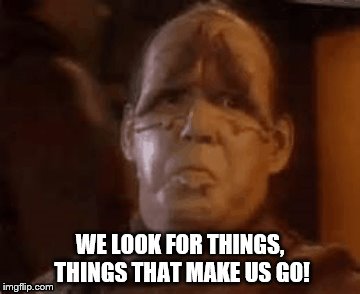Derivative and uninspired. Have an upvote.
TootSweet
Ok, then. What if the judge signing the warrant is an occupant of the property in question?
Sure that would basically never happen, but suppose the vampire manages to trick the judge into signing a warrant that covers the judge's own house or maybe some place the judge frequents.
What's a warrant if not a court-signed invitation to enter a suspect's house?
Yeah, if the information in phone books isn't in scope of copyright for failing to meet a minimum standard of "creativity" surely a random number shouldn't be either.
But yeah. It sounds like the legal tactic Nintendo used to scare Valve (well, Valve was complicit, but anyway) was about the anti-circumvention and anti-trafficking parts of the DMCA.
Ah. Well, I still see the web interface pulling in new posts as I sit on the home page. But then, I also mentioned that my Lemmy instance (or, the instance I've joined, that is) is a couple of versions behind. (I'm not sure if they're behind on both Lemmy and the UI or on just one.) If they've changed that behavior in newer versions, that could be why I'm still seeing the web interface pull in new posts while you don't.
And if that behavior is removed in the newer versions, then I can probably expect all the issues I've mentioned in this thread to be resolved as soon as latte.isnot.coffee updates to more recent versions of either Lemmy or Lemmy-UI or both.
It doesn't refresh the page to get new posts, but it does pull in new posts as they're posted.
If Trek goes dark, that'll just be a good excuse to watch all of what's out there now again from the beginning. Or watch more fan-made and non-canon content.
I know this is supposed to be humor, but if philosoraptor is trying to say AI is overhyped, I wholeheartedly agree.
I feel like there needs to be much more of an "AI Skepticism" movement. (Like there has existed a healthy cryptocurrency skepticism movement for a good long while now.) In short, the world needs a lot more of this.
The AI economic bubble is already fucking us all over.
I can still feel in my mind's skin the sticky, greasy venier that coated the inside of the play places.
This u?

I've got a smart TV on which the Wifi broke very shortly after I got it. I just use a Chromecast and it works nicely.